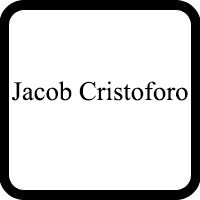Standish Criminal Lawyer, Michigan
Sponsored Law Firm
-
 x
x

Click For More Info:
-
Law Office of Mark S. Guralnick
55 Madison Avenue 4th Floor Morristown, NJ 07960» view mapCriminal Defense Law Dedicated. Fearless. Successful.
Mark S. Guralnick and his legal team have helped clients throughout the USA and across the world by applying unparalleled dedication and hard work to each case.
800-399-8371
Jacob Anthony Cristoforo
✓ VERIFIEDCriminal, Divorce & Family Law, Litigation, Traffic, Misdemeanor
Jacob Cristoforo is a practicing attorney in the state of Michigan.
Errick Alan Miles
✓ VERIFIEDCriminal, Personal Injury, Family Law, Medical Malpractice, Litigation
Errick is an Associate Attorney with Smith Bovill, P.C., who began his employment with Smith Bovill, P.C. following his graduation from Thomas M. Cool... (more)
Duane L. Hadley
Real Estate, Traffic, Estate, Wrongful Termination, Criminal
Status: In Good Standing Licensed: 27 Years
Jeffrey Martin Foldie
Litigation, Labor Law, Divorce & Family Law, Criminal
Status: In Good Standing Licensed: 18 Years
George Killeen
Divorce & Family Law, Criminal, Accident & Injury
Status: In Good Standing Licensed: 51 Years
Brian Harold Jean
Estate, Criminal, Civil Rights, Personal Injury, Estate Planning
Status: In Good Standing Licensed: 15 Years
 Mark Guralnick Morristown, NJ
Mark Guralnick Morristown, NJ AboutLaw Office of Mark S. Guralnick
AboutLaw Office of Mark S. Guralnick Practice AreasExpertise
Practice AreasExpertise


